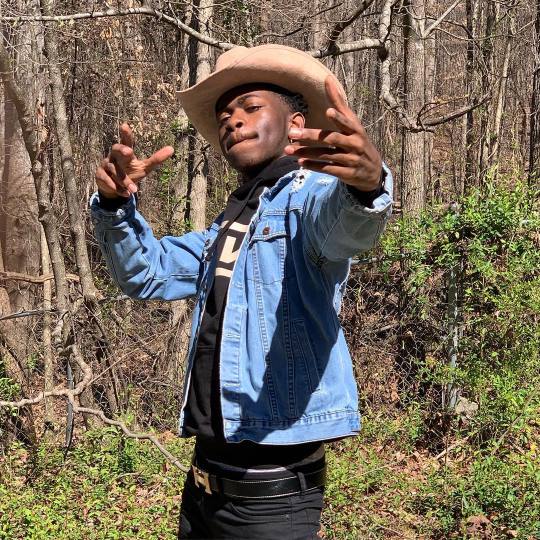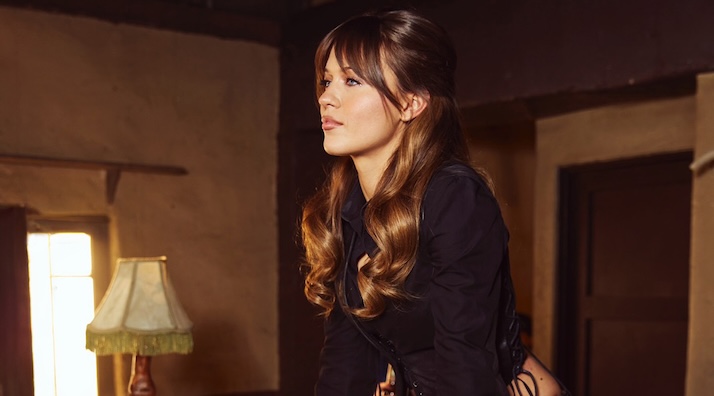The Dismissal of Lil Nas X's "Old Town Road" as Country Speaks to a Larger Issue in Music

"'Old Town Road' by Lil Nas X does not currently merit inclusion on Billboard's country charts. When determining genres, a few factors are examined, but first and foremost is musical composition. While 'Old Town Road' incorporates references to country and cowboy imagery, it does not embrace enough elements of today's country music to chart in its current version."
The official statement from Billboard on their decision to remove Lil Nas X's "Old Town Road" from Billboard's Hot Country charts after it debuted at No. 19 reads as business enough, but is that all there really is to the sudden decision? At the very least fans, and potentially Lil Nas X himself, thinks there may be a larger issue at play here.
just because old town road has funny lines doesn't mean it's parody. it has a theme. anybody with ears can tell i put some kind of effort into that song.
- nope (@LilNasX)March 27, 2019
But let's back up here for a minute. For those of you unaware with Lil Nas X, the Atlanta artist has only one single to his name, the aforementioned "Old Town Road," but with that one track, he ignited a label bidding war and a larger discussion on how Billboard decides what is country enough for their charts. The now Columbia-signed artist's viral hit, which features everything from a Red Dead Redemption 2 visualizer and references to lean and Gucci cowboy hats, is at the forefront of a discussion of if the deciding factor of what makes a song country enough is, in fact, race.
Following the announcement of the removal of "Old Town Road" from Billboard's Hot Country charts, fans and artists alike decried the decision. From Ski Mask The Slump God citing it as "Discrimination at its finest" to Country Music Award nominee Meghan Linsley denouncing the decision in a well-aimed tweet, the reaction to Lil Nas X's dismissal has been anything but well-received. After all, this is the same Billboard chart where Brad Paisley's ode to the struggles of being deemed an "Accidental Racist" for wearing a confederate flag shirt peaked at No. 23.
That is some BS. It's got plenty of "country elements" 🤠and its as "country" as anything on country radio, tbh. 🤷ðŸ¼â€â™€ï¸@LilNasX https://t.co/8iiQOqQhjs
- Meghan Linsey (@meghanlinsey)March 28, 2019
Yet, in light of the issue of whether "Old Town Road" is twangy enough to officially appease those who decide what is and is not country, discrimination in music, specifically when it comes to the Billboard charts, is nothing new. Historically, the Billboard charts have always had difficulty in classifying music made by African-American artists.
What we now know today as the R&B/Hip-Hop charts, because the two genres are apparently one in the same, was, in the majority of the '40s, went under the name of Race Records. And while the Billboard R&B/Hip-Hop charts have gone through multiple iterations over the years in hopes of reflecting the changing musical landscape, even in the '80s the charts were referred to under the moniker of Black Singles.
While it is easy to denounce Billboard's less than stellar track record in naming conventions as an unfortunate relic of the past, African-American artists crossing over to traditionally White spaces is an issue that persists in music to this day. Let's look at Beyoncé's "Daddy Lessons." A notable moment on the prolific artist's landmark 2016 album, Lemonade, it is an undeniable ode to country music traditions that even goes as far to feature to The Dixie Chicks. And in spite of Beyoncé and The Dixie Chicks' live performance of the number at the 50th annual Country Music Awards earning the award show its highest ratings in years, Beyoncé was met with backlash from conservative country fans and was not actually nominated in any award categories for the number.
The fault by no means lies solely with country music; it is prevalent in all aspects of the music industry. An artist like Juice WRLD and his most recent release to date, Death Race for Love, is a brilliant fusion of rock and hip-hop aesthetics, yet you will not find him or it on any of Spotify's leading rock playlists. And while an artist like Juice WRLD is being shut out of the rock world, it comes as no surprise when a pop artist throws some traps drums on a track and receives heavy rock rotation at most radio stations.
Music and its often too slow acceptance of African-American artists in White spaces, most of which they had a hand in crafting - here's looking at you rock and roll - is a problem that is more than simple history (and don't get us started on the term "urban music;" that is an article unto its own). So, while the music world at large scrambles to make sense of where Lil Nas X's country trap fits in today's music landscape, it is at least assuring to know that the Atlanta artist is taking the whole controversy in stride.
billboard wen they saw old town road rising on the country charts pic.twitter.com/9QGfGtCyI5
- nope (@LilNasX)March 28, 2019


-1770352787.jpg)
